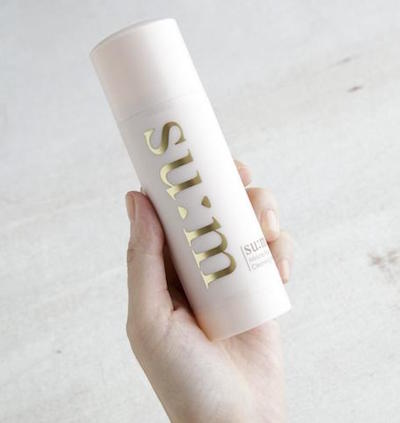We’re big fans of Korean skincare around here. Korea has always remained ahead of the curve when it comes to methods that achieve and maintain youthful, bouncy, and glowing skin. Korean products are backed by serious science, and their beauty culture has long placed an importance on a habitual and indulgent routine — Korean women have been known to use up to ten skincare products every morning and night.
Double cleansing has been the cornerstone of the Korean method — it is the simplest change to make in your skincare regimen and arguably one of the most important if you experience a litany of skincare issues. If you’re frustrated with your face, unhappy with your makeup application, or you’re just looking to incorporate an inexpensive youth-preserving step into your routine — allow us to demystify the double cleanse.
What is Double Cleansing?
Before I actually did the research, I assumed that double cleansing just meant washing your face twice. I thought… okay? What’s the big deal about that? Just seems like a waste of product.
Double cleansing actually means using two different types of cleanser to properly remove impurities and effectively cleanse your skin. Korean women understand that by using both an oil-based and a water-based cleanser, you can remove more of the pore clogging and irritating environmental agents that lend themselves to breakouts and loss of elasticity.
Source: @cakedtothenines
Why Double Cleanse?
Water and oil don’t mix. We all remember those science class experiments from grade school, right? Sebum, the “bad oil” that our skin produces naturally, essentially acts as glue within our pores. Sebum attaches to dead skin cells and other impurities and holds them deep in our skin — the recipe for a big fresh blemish.
By using an oil-based cleanser as the first step of your morning and evening skincare routine, you more effectively lift away sebum and other oil-based impurities that a water-based cleanser cannot attach to — such as makeup and SPF.
Following the oil cleanse with a water-based (or glycerin-based) cleanser allows the surfactants (cleansing agents) in this type of cleanser to more effectively penetrate the layers of skin, since you have cleared away the oil barrier that otherwise would prevent this from happening. Water-based impurities, such as sweat and environmental pollutants, can then be properly removed.
Double Cleansing with Acne
If you struggle with persistent acne, double cleansing is a blessing in disguise. It seems counterintuitive to treat acne with oil, since oil is what causes breakouts. However, the “bad oil” your skin produces (sebum) only becomes bad when there is an excessive build-up of it — when your skin hasn’t been properly cleansed.
Sebum is absolutely essential to the health of your skin, as it helps it maintain moisture and contains the antioxidant Vitamin E. When we strip away sebum with harsh cleansers that contain alcohol and salicylic or glycolic acid twice a day, we encourage our skin to overproduce this problematic oil. This overproduction of oil mixed with dehydrated and dead skin cells is what leads to clogged and infected pores.
Instead of breaking down sebum with highly astringent cleansers that are stressful and irritating to our skin, we can balance the oil production by making sure there is never any build-up and our skin is properly hydrated.
Source: @violette_fr
How to Choose Your Products
No matter how many YouTubers or bloggers might try to have you believe otherwise — using a pure carrier oil (such as coconut oil) does not constitute an oil-cleanse. In order for a cleanser to be a cleanser, it must be formulated to contain surfactants. Oil cleansers can come in a variety of consistencies, from thick or thin oils to balms, so consider what you would feel most comfortable with.
Your water-based cleanser that follows should be super gentle, pH balanced with little to no fragrance or alcohol. Think of this cleanse as more of a pampering and moisturizing step and not so much of a “deep clean.” Cleansers really are only meant to clean, so avoid any formulations that claim to treat skin conditions — they usually will contain ingredients that are too harsh for this step in your routine.









